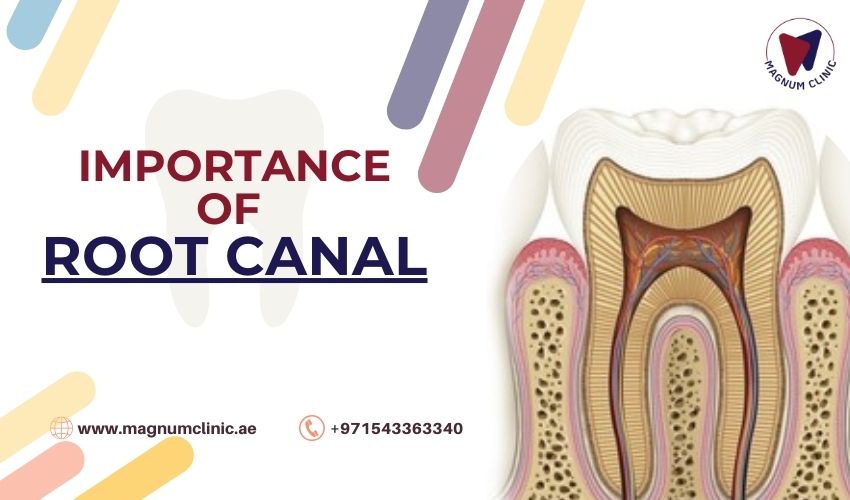Understanding the Importance of Root Canal Therapy for Tooth Preservation

What Is Root Canal Therapy?
Root canal therapy, often referred to simply as a "root canal," is a dental procedure performed to treat infected or damaged pulp (the innermost part) of a tooth. The pulp contains nerves, blood vessels, and connective tissue, and when it becomes infected or inflamed, it can lead to severe pain and tooth decay.
The Importance of Root Canal Therapy
1. Pain Relief
One of the primary reasons for undergoing root canal therapy is to alleviate severe tooth pain caused by infection or inflammation. The procedure removes the infected pulp, effectively eliminating the source of the pain.
2. Preservation of Natural Teeth
Root canal therapy is a tooth-saving procedure. Instead of extracting the affected tooth, the dentist cleans and seals the root canals, preserving the natural tooth structure.
3. Prevention of Tooth Loss
If left untreated, dental infections can spread to surrounding tissues and even lead to tooth loss. Root canal therapy prevents this progression, maintaining your oral health and smile.
Read Also: Endodontist For Your Root Canal Treatment
4. Improved Oral Function
After a successful root canal, the treated tooth can continue to function as a fully functional part of your bite. This allows you to chew and speak comfortably.
5. Preventing Further Complications
Untreated dental infections can lead to abscesses, which can be painful and require more extensive treatment. Root canal therapy is a proactive approach to preventing such complications.
6. Halting Infection Spread
Dental infections left untreated can spread beyond the tooth's pulp to the surrounding bone and tissues. Root canal therapy stops the infection from advancing, preventing the need for more extensive and costly treatments.
7. Preserving Natural Appearance
Root canal-treated teeth maintain their natural appearance, which is essential for your smile's aesthetics. Tooth extraction, on the other hand, can result in gaps that may require artificial replacements.
8. Maintaining Chewing Function
Preserving natural teeth through root canal therapy allows you to continue chewing and eating without difficulty. Replacing a missing tooth can sometimes pose challenges in terms of functionality.
9. Preventing Jawbone Deterioration
Tooth loss, if not addressed promptly, can lead to jawbone deterioration. Keeping your natural teeth with root canal therapy helps maintain the integrity of your jawbone.
Must Read: Misconceptions About Root Canals
Conclusion
Root canal therapy is a valuable dental procedure that offers numerous benefits, including pain relief, the preservation of natural teeth, and the prevention of further dental complications. At Magnum Clinic, we are committed to providing you with the highest quality of dental care, including root canal therapy when needed. If you have concerns about your dental health or suspect you may require a root canal, please don't hesitate to contact us for a consultation.
Contact Magnum Clinic today to schedule a consultation and explore the benefits of root canal therapy for preserving your natural teeth and oral health. Call us at +971 5433 63340 or visit our website to book your appointment
FAQs About Root Canal Therapy
Q1: Is root canal therapy painful?
No, root canal therapy is performed under local anesthesia, ensuring you are comfortable and pain-free during the procedure. Some post-procedure discomfort is normal but can be managed with over-the-counter pain relievers.
Q2: How long does a root canal take?
The duration of a root canal procedure typically ranges from 1 to 2 hours, depending on the complexity of the case. Multiple appointments may be required for more complex cases.
Q3: Are there alternatives to root canal therapy?
The primary alternative to root canal therapy is tooth extraction, followed by replacement with a dental implant, bridge, or partial denture. However, preserving the natural tooth through root canal therapy is often the preferred option whenever possible.
Q4: Will my tooth be weaker after a root canal?
After a root canal, the tooth may become more brittle over time. To prevent this, a crown is often recommended to strengthen and protect the treated tooth.
Q5: Is root canal therapy suitable for children?
Yes, root canal therapy can be performed on children if they have severely infected or damaged teeth. However, pediatric dentists may consider alternative treatments depending on the child's age and tooth development.
Q6: How long does a root canal-treated tooth last?
With proper care, a tooth treated with root canal therapy can last a lifetime. Regular dental check-ups and good oral hygiene practises are essential to ensuring its longevity.
Q7: Can I drive home after a root canal procedure?
Yes, you can typically drive yourself home after a root canal. The procedure uses local anesthesia, so there is no impairment of your ability to drive.
Q8: Are there any risks associated with root canal therapy?
Root canal therapy is a safe and common dental procedure. Like any medical or dental treatment, there may be some risks or complications, but they are rare. Your dentist will discuss potential risks with you before the procedure.
